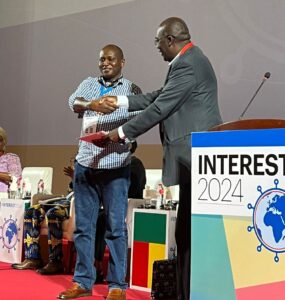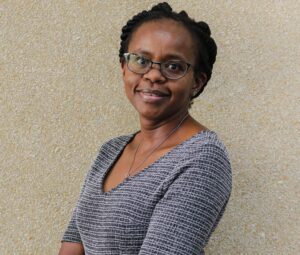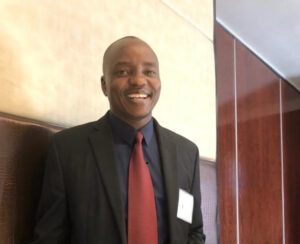We had a chance to speak with Akinyinka Omigbodun, former chairman of the management board of CARTA and a coordinator and facilitator of the ongoing Joint Advanced Seminar 3. He weighed in on the benefits and gaps of virtual meetings and shared his opinion on the importance of the Joint Advanced Seminar 3 to the CARTA fellows’ doctoral journey. Read on to find out how different this year’s JAS 3 is from the previous ones.
Virtual meetings have become the norm since the Covid-19 pandemic started. What would you say are the benefits, drawing from your experience of the just-concluded joint advanced seminar (JAS)? Can this be embraced for future meetings/ events?
I believe one of the legacies from the world’s current battle with the COVID-19 pandemic will be a permanent alteration in the way meetings and other forms of social interaction are conducted. Even when the pandemic comes entirely under control, some of the practices forced upon us by the exigencies of the situation will undoubtedly endure. A lot of meetings that were held in person before will now be held over virtual platforms. It does not mean that person-to-person meetings will cease entirely, but they will certainly be less frequent, and justifying the expenditure of resources on such meetings will be more challenging. One of the virtual platform benefits is less financial outlay in terms of cost of travel, hotel, and other incidental expenses. Another advantage is that it has compelled new thinking about how we could best achieve the objectives of JAS-3. I think the one-on-one facilitation between resource persons and Fellows probably encouraged the facilitators to become more familiar with the work of the particular Fellows they were interacting with, which should have a positive impact on the quality of the interactions. I believe this one-on-one prolonged interaction over three-hour blocks of time will probably become a permanent feature of future JAS-3 deliveries. However, I make bold to say that when the situation returns to normal, we will still need to hold part of JAS-3 as a person-to-person event, albeit for a shorter length of time than we had used in the past. The camaraderie engendered by the intense social interactions of previous JASes led to the forging of many collaborations for research and manuscript preparation. We need to continue to provide such opportunities for future CARTA Fellows as part of their doctoral journeys.
How different was this year’s JAS 3 compared to the past from a facilitation point of view?
The fact that this year’s JAS-3 is being held over a virtual platform is already a significant departure from the past where all the CARTA Fellows gathered in Ibadan, and different facilitators came in for varying lengths of time, usually not more than a week, for intensive interactions with the Fellows. That meant that some facilitators had to make very long journeys, either from within Africa or other continents, to get to Ibadan. That often constituted a lot of sacrifice in terms of time for the trips to and fro and the time spent in Ibadan. While it was tasking, on the one hand, it also provided an opportunity for some of the facilitators to visit the country and the institution for the first time, widening their horizons and creating opportunities for meeting new people or starting new collaborations. With the virtual platform used this year, the facilitators could stay in their places of abode and engage the CARTA Fellows from there. This allowed them to have more time to continue many of their other day-to-day activities than the previous mode of delivery allowed. However, it also reduced the level of interaction and the ‘getting-to-know-you’ atmosphere that existed with the previous practice. During those last seminars, the Fellows and the Facilitators often had more intense periods of person-to-person interactions, including conversations over meals, that made it easier to develop academic relationships that could continue after the JAS. I believe that some Fellows were able to establish a level of rapport with Facilitators during previous JAS-3 diets that may not be possible with this virtual mode because the interaction was more limited in duration and conducted over the internet. I can sum up by saying that some of the differences have been advantageous while others, indeed, are not.
How vital is JAS 3 to the CARTA fellows’ doctoral journey?
I think that JAS-3, if one were to use the analogy of baking a cake, signifies when the cake should be ready for removal from the oven. In that kind of metaphorical frame, JAS-4 represents the icing on the cake. I believe JAS-3 is where Fellows crystallize their thoughts and ideas and bring it all together in their manuscripts, whether for journal articles or a monograph-type dissertation. When fellows make optimal use of the opportunities JAS-3 presents, they emerge having a better understanding of the research work they have done and are more confident in expressing themselves about the new things they had discovered in the course of their research journey. CARTA Fellows need to understand from very early in the doctoral fellowship journey that being able to communicate the output of their research competently is vital to advancement in their academic careers and that JAS-3 affords them a platform to hone those skills.




